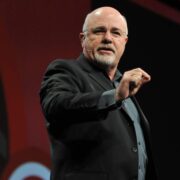KEY POINTS
- More advisors are getting creative with their fees so that they can provide their services to people who generally could not afford it.
- That includes charging a regular monthly subscription or billing per hour for monetary preparation.
- On the other hand, others are providing group coaching and courses.
There’s a huge misconception that financial planning is just for the rich. The truth, however, is that financial preparation is a path for anyone to gain wealth.
The goal of financial planning is to get individuals to their desired life objectives. It doesn’t matter when you begin or how much money you have, experts say. All that matters is that you get to those last objectives.
Generally, lots of consultants charge you a portion –– state, 1% –– of your assets under management with them, and so if you do not have $250,000 or $500,000 to shell out, you might not interest them.
That’s changing. A growing variety of advisors expense in other manner ins which allows more people to access their services.
“You do not need to be abundant to deal with a monetary planner,” said Justin Nichols, a Manhattan, Kansas-based certified monetary planner and director of operations at the Garrett Preparation Network.
For instance, the 200-plus consultants in the Garrett Preparation Network use the choice of paying by the hour for financial preparation. “Our advisors agree to deal with a broad group of customers, not simply the wealthy,” Nichols said.
What type of services can people manage the hour? The list is long: budgeting, financial obligation management, insurance coverage, and estate preparation, conserving and investing help, Social Security planning, and charitable offering assistance.
And simply because you pay an advisor hourly does not suggest you can’t have a long-term relationship with them: Around half of the customers who do so in the Garrett Preparation Network go back to their advisor for evaluations and financial check-ups, Nichols added.
The average hourly rate charged by a consultant in the Network is $215, however, the charges can vary from $150 to more than $500, Nichols said. Some clients will need just three hours of aid, others 12.

“Maybe a client does not require or isn’t happy to spend for an entire broad-based financial plan, but they’re simply wanting to focus on a few immediate and essential areas of their individual financial life,” Nichols said. “They can more quickly get that focused planning by simply paying by the hour.”
On the other hand, other consultants charge a month-to-month or yearly membership to be able to see clients without huge checking account balances.
Eric Roberge, a CFP and the founder of Beyond Your Hammock in Boston, bills a few of his clients $333 a month. (The program is $4,000 a year, “broken down into regular monthly payments to make it simpler for customers to handle in their cash circulation,” Roberge said.)
“We reach individuals that conventional financial consultants tend to ignore,” Roberge said. Those clients are typically simply starting to buckle down about their goals, he stated, “and maybe investing outside of retirement accounts for the very first time, or handling intricacies like equity settlement.”
For that $4,000 annual cost, clients can consult with an individual monetary coordinator approximately 5 times in their first year, and after that 2 to 3 times in the following years, Roberge stated.
Jason Howell, a CFP and the president of Jason Howell Company in Vienna, Virginia, likewise gives clients the option of paying a flat yearly charge –– $5,000 for the first 6 months, and then $5,000 a year afterward.
It’s typically the relocations made at the start of one’s financial journey, even if they haven’t accumulated a lot of wealth at that point yet, that will figure out how the rest unfolds, Howell said.
“The needs of more youthful specialists often focus on developing their first emergency fund, combining finances with a loved one, taking full benefit of employer-sponsored retirement strategies, and starting a life insurance coverage program while they are young, healthy, and skinny,” he said.
Meg Bartelt, a CFP and the founder of Flow Financial Preparation in Washington, said charging customers a flat charge –– her typical is $6,000 a year –– rather of a portion of their properties under management allows her to work with those who might not have a lot salted away yet but are high earners. (Her average customer makes $140,000 or more a year.)
“If you can produce a company that can beneficially serve more people, you’ll discover it simpler to discover customers,” Bartlett said.
The more selfless inspiration?
“We advisors can help people a lot and so quickly with our built up knowledge and know-how,” Bartlett said. “Why do only abundant individuals get to have that help?”
In fact, even hourly and flat fees will be too pricey for many, she stated. For those, Bartlett recommends they check out books like “I Will Teach you to Be Rich” by Ramit Sethi and “How a Second Grader Beats Wall Street” by Allan Roth.
Meanwhile, some consultants, recognizing their costs are expensive for the majority of people, provide group coaching and courses, she included.
“It’s not going to be as powerful as having an individual relationship with a consultant, but it’s going to be way cheaper,” Bartlett said.
























Comments